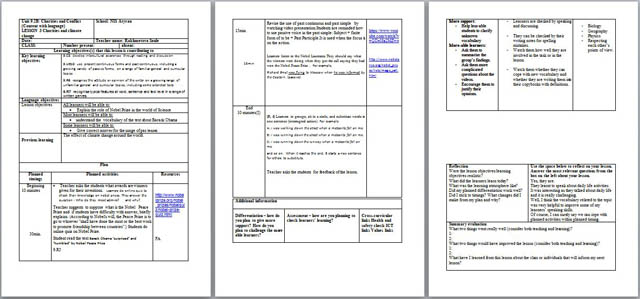Learning objectives(s) that this lesson is contributing to.
Key learning objectives.
9. C8 develop intercultural awareness through reading and discussion.
9. UE10 use present continuous forms and past continuous, including a growing variety of passive forms, on a range of familiar general and curricular topics.
9. R6 recognise the attitude or opinion of the writer on a growing range of unfamiliar general and curricular topics, including some extended texts.
9. R7 recognise typical features at word, sentence and text level in a range of written genres.
План урока.
Beginning 10 minutes.
Teacher asks the students what awards are winners given for their inventions. Learners do online quiz to check their knowledge on nobel prizes. They answer the question : Who do they most admire? and why?
Teacher suggests to suppose what is the Nobel Peace Prize and if students have difficulty with answer, briefly explains. (According to Nobel's will, the Peace Prize is to go to whoever "shall have done the most or the best work to promote friendship between countries". ) Students do online quiz on Nobel Prize.
Student read the text Barack Obama ‘surprised’ and ‘humbled’ by Nobel Peace Prize.
9. R5

Revise the use of past continuous and past simple by watching video presentation. Students are reminded how to use passive voice in the past simple: Subject + finite form of to be + Past Participle. It is used when the focus is on the action.
Learners listen to the Nobel Laureates. They should say what the winners were doing when they got the call saying they had won the Nobel Peace Prize. For example,
Richard Ernst was flying to Moscow when he was informed by the Captain. (passive)
End 10 minutes.
(P, f) Learners in groups, sit in a circle, and substitute words in one sentence (interrupted action). For example
A: I was walking down the street when a meteorite fell on me.
B: I was running down the street when a meteorite fell on me.
C: I was running down the runway when a meteorite fell on me.
and so on. When it reaches the end, B starts a new sentence for others to substitute.
Teacher asks the students for feedback of the lesson.
Differentiation – how do you plan to give more support? How do you plan to challenge the more able learners?
More support:
Help less-able students to clarify unknown vocabulary
More-able learners:
Ask them to summarise the group’s findings.
Ask them more complicated questions about the videos.
Encourage them to justify their opinions.
Reflection.
Were the lesson objectives/learning objectives realistic?
What did the learners learn today?
What was the learning atmosphere like?
Did my planned differentiation work well?
Did I stick to timings? What changes did I make from my plan and why?
Весь материал - в архиве.

 Получите свидетельство
Получите свидетельство Вход
Вход












 План урока по английскому языку на тему "Charities and Conflicts" (0.38 MB)
План урока по английскому языку на тему "Charities and Conflicts" (0.38 MB)
 0
0 1223
1223 136
136 Нравится
0
Нравится
0


